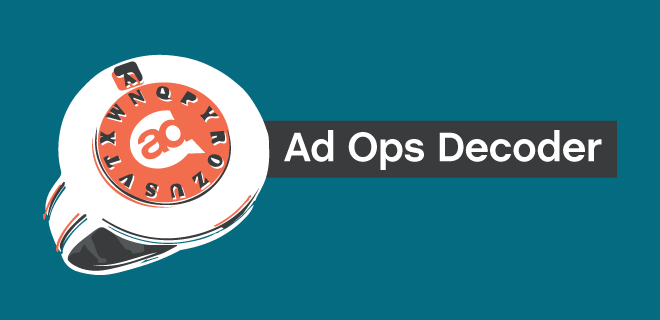
Programmatic guaranteed deals have been in the air for a while now. But as we’ve seen at several AdMonsters events, when a session on programmatic opens up into the Q&A segment, there’s still a lot of confusion about what programmatic guaranteed means.
The marketplace hasn’t made clarity on this terminology easy. There’s programmatic guaranteed, programmatic direct, preferred deals, and (although we hear about this one less often) automated guaranteed. None of these are the same thing, but some of these terms can get jumbled together in conversation—probably because they all sound like they would mean the same thing.
Not to confuse things further, but programmatic guaranteed and real-time guaranteed are the same thing. The term you use will depend on what you and your ad tech partners prefer. But they refer to the same process.
Decoder isn’t the forum to break down the product or process each of these terms describes, although if you’d like a guide, AdMonsters contributor Will Rand did a good job of that earlier this year in his extensive exploration of private marketplaces.
Programmatic guaranteed belongs in Will’s PMP series because it’s one iteration (of a few) of what you might call “the next stage of PMPs.” PMPs, as most of us know, were supposed to allow buyers to transact programmatically, but in a walled-garden environment of known-entity publishers. But publishers soon noticed there was often a difference between what buyers said they were going to spend in PMPs, and what they actually spent. There wasn’t a mechanism to make buyers spend. Buyers, at the same time, often found PMPs didn’t give them the scale they wanted, once they layered in all their targeting and other criteria. It made PMPs feel like a lot of work for low reward, and that made people start wondering about what the industry could develop that’s sort of like PMPs, but better.
Enter programmatic guaranteed. As with PMPs, you have Deal IDs, so sellers and buyers can enable transactions on predetermined criteria. But there are a couple key differences: One, the buyer agrees beforehand to spend a certain amount. Two, the transaction doesn’t necessarily happen entirely within a walled garden. The process syncs up the publisher’s audience and the buyer’s audience to find however many impressions fit the targeting/criteria the buyer needs. That removes some of the uncertainty of PMPs—the publisher knows they’re getting paid, and the buyer knows they’re reaching the size audience they want.
We’ve seen a lot of different attempts to get to “the next generation of PMPs,” which gets confusing when you try to explain your strategies to partners, and vice versa. But if you’re transacting programmatically and have to guarantee delivery, what you’re doing is probably programmatic guaranteed.
Programmatic guaranteed blurs the line between programmatic and direct—but then again, so do a lot of things in 2017. This came up last night, at AdMonsters’ OpsX event in New York. Often, when we talk about “blurring the line between programmatic and direct,” we sound pretty excited about it, because “direct” brings to mind “big bucks up front.” But “direct” also implies closer relationships between publishers and advertisers. You need to have conversations, you need to work out the details of contracts ahead of time, and you need to train programmatic and ops people to think about business relationships similarly to how sales people do.
And of course, part of that means making sure everyone understands what we’re talking about. If it feels like the definition of “programmatic guaranteed” is still malleable, one person at OpsX said last night, that means publishers have an opportunity to firm it up and define the terminology for advertisers.
AdMonsters Resources:
The New Dichotomy (2017)
The ABCs of PMPs: Part I (2016)
The Dawn of Real-Time Guaranteed: An Interview With OpenX’s Dmitri Kazanski (2016)